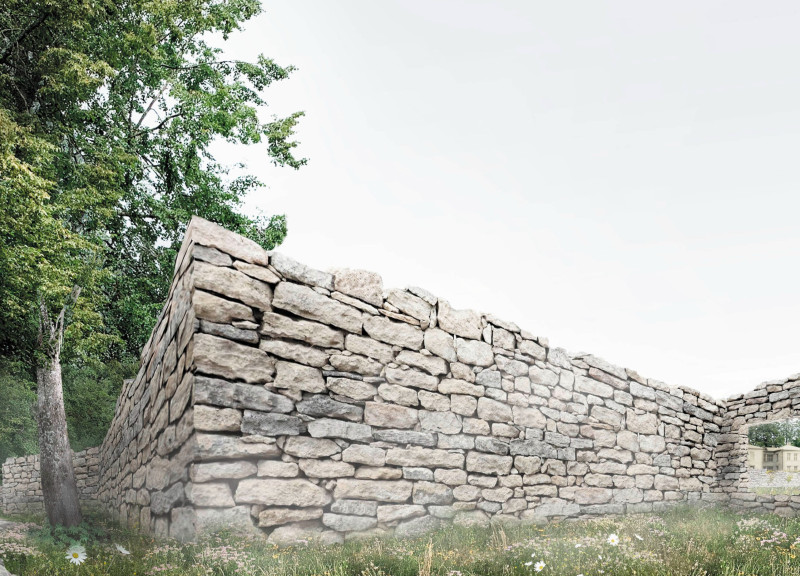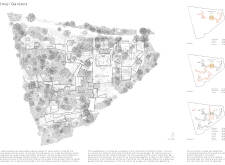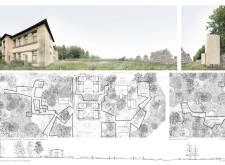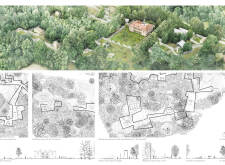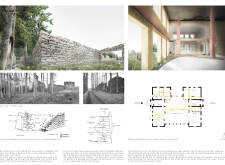5 key facts about this project
The design intricately incorporates the natural landscape, utilizing an organic layout that enhances flow and accessibility throughout the site. Key components include:
- The Old School Building serves as a focal point for activities, housing the Museum of the Horse and facilitating workshops. This adaptive reuse approach preserves historical significance while meeting contemporary needs.
- Multiple garden types, such as the Large Meadow and Pocket Garden, create diverse environments for social interaction and individual reflection. Each garden area is intentionally designed to serve specific functions, from collaborative art-making to quiet contemplation.
- Water features, including the Little Pond, not only enhance aesthetic value but also contribute to biodiversity and ecological balance within the space.
Unique to the Omuli Gardens project is its integration of local materials, prioritizing sustainability and durability. The use of natural stone for walls reflects traditional construction methods, while timber elements add warmth and a connection to nature. Reinforced concrete and steel provide structural integrity to the museum and workshops.
The project stands out for its focus on interactivity and adaptability. Flexible spaces are designed to accommodate a range of artistic activities and community events, allowing for seamless transitions between indoor and outdoor experiences. This fluidity encourages active participation, fostering a sense of community ownership over the space.
Another notable aspect of the design is its cultural references to the surrounding historical context. By incorporating elements that resonate with the local heritage, the project cultivates a deeper appreciation for both the architecture and the environment.
The architectural plans illustrate a holistic vision that harmonizes with the landscape, encouraging exploration and engagement. The architectural sections provide insights into the spatial relationships and materiality that define the project. Various architectural designs and ideas are evident throughout the site, highlighting the project's commitment to creating a responsive and thoughtful environment.
For a deeper understanding of the Omuli Gardens project, including detailed architectural plans, sections, and design concepts, readers are encouraged to explore the comprehensive project presentation.


